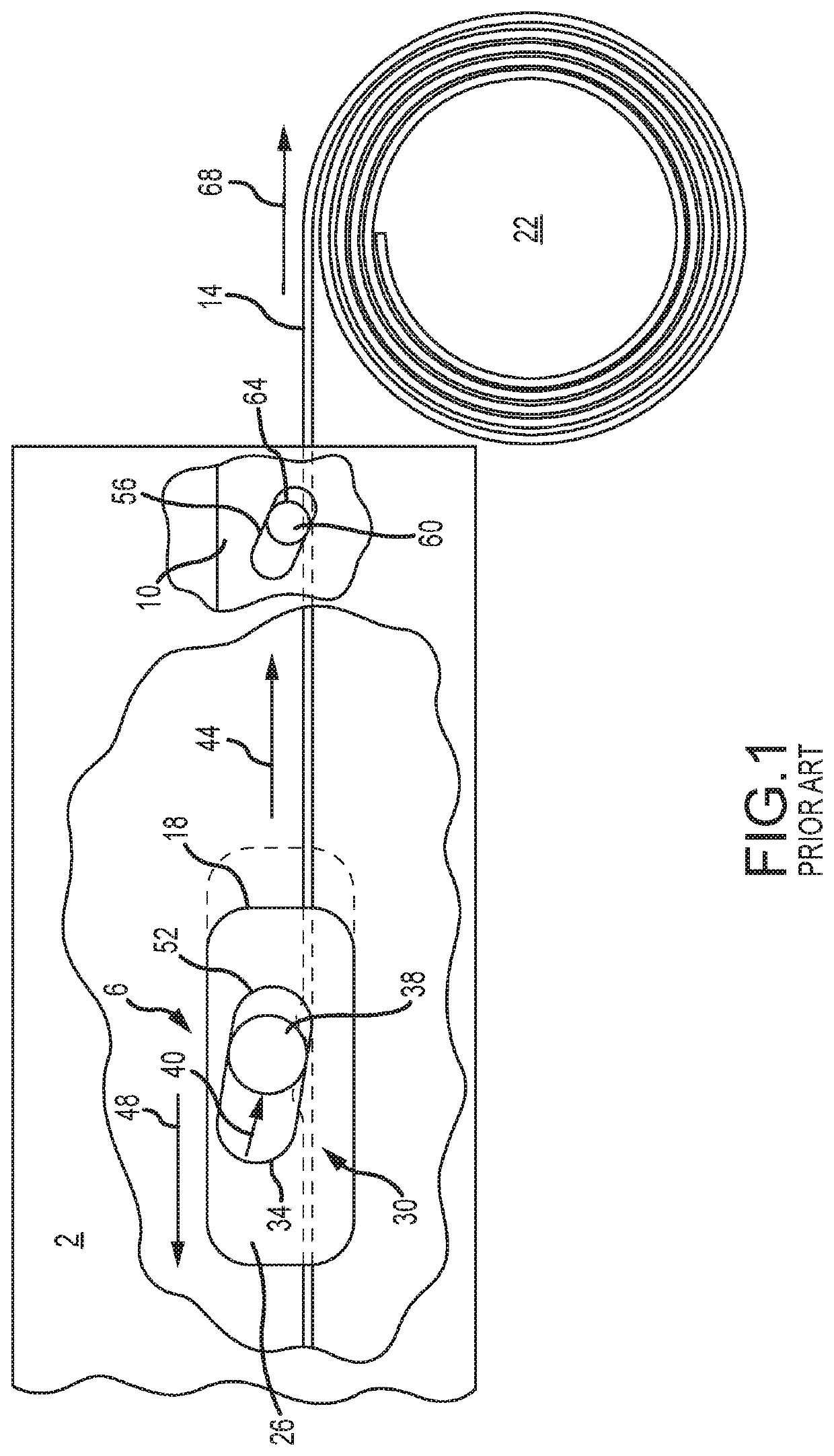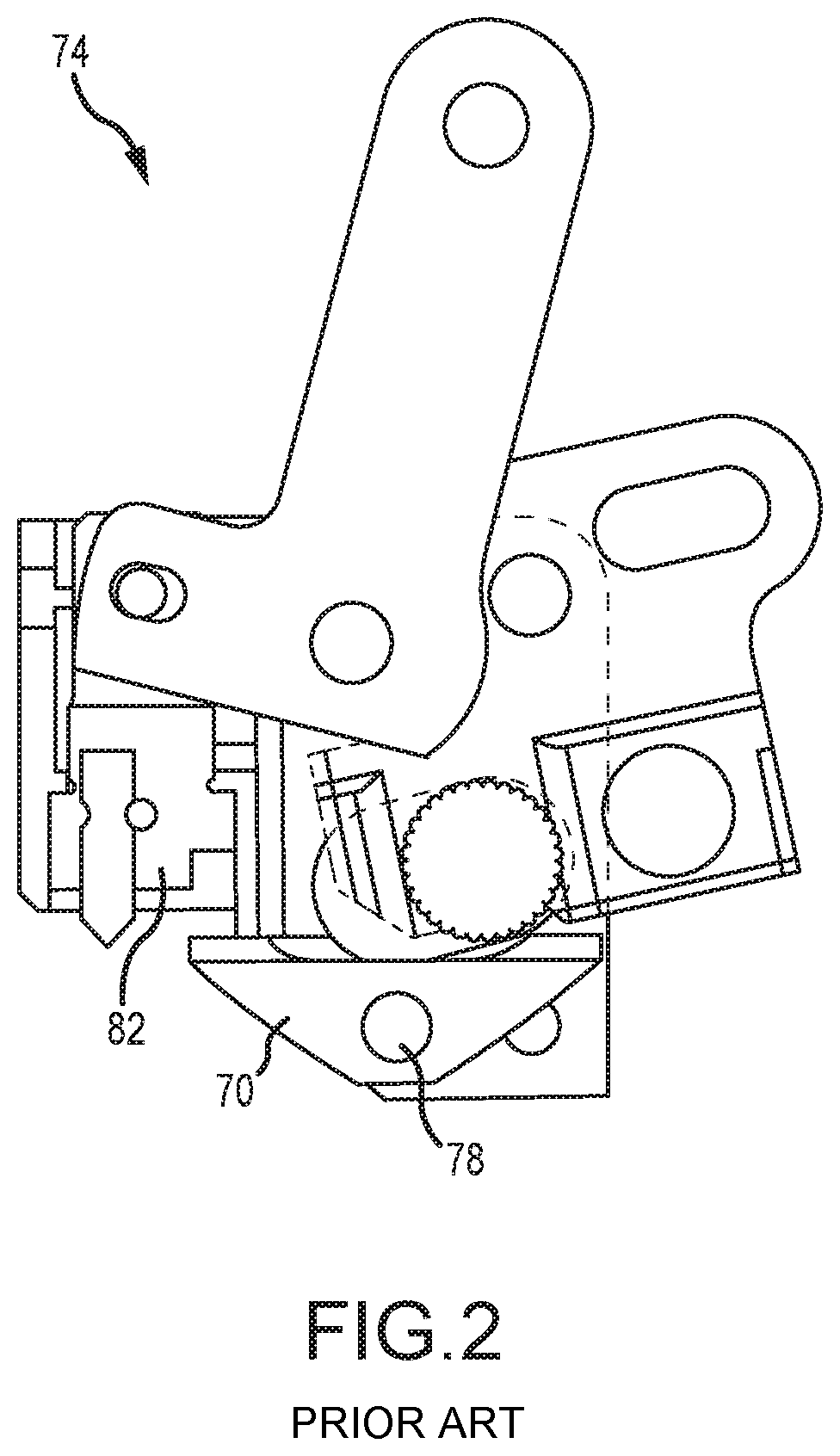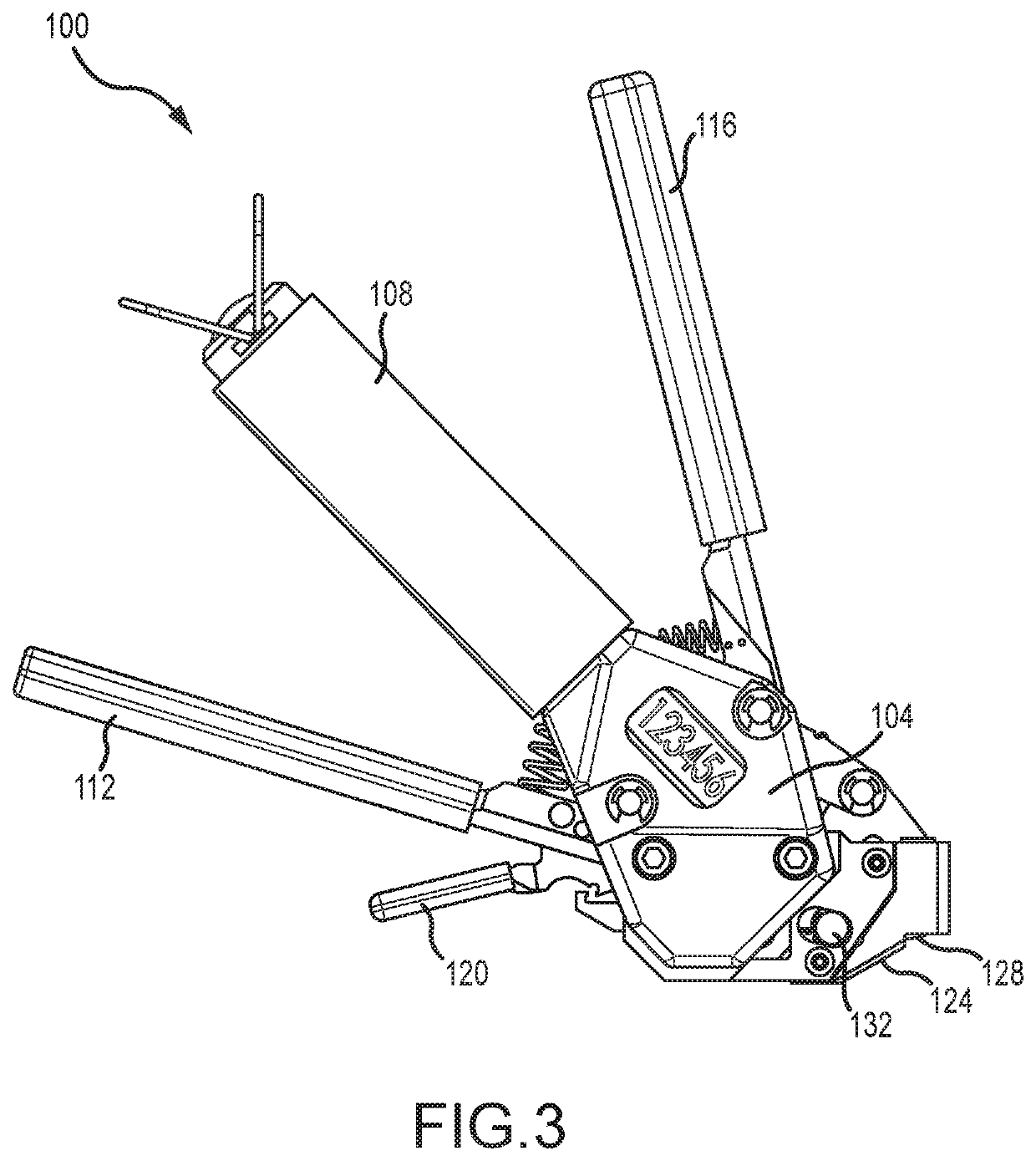Band tensioning tool and calibration device therefor
a band tensioning and tool technology, applied in the field of relatively compact band tensioning tools, can solve the problems of reducing the effectiveness of the tie, reducing the service life of the tie, so as to improve the service life, maintain the tension of the band, and improve the effect of the head stiffness
- Summary
- Abstract
- Description
- Claims
- Application Information
AI Technical Summary
Benefits of technology
Problems solved by technology
Method used
Image
Examples
Embodiment Construction
[0052]FIGS. 3-6 show a banding tool 100 of embodiments of the present invention that is designed to tension and secure a band clamp comprising a band and a band locking head. The banding tool 100 includes a head 104 interconnected to a handle 108. A tension handle 112 and a cutoff handle 116 are rotatably interconnected to the head 104 and move relative to the handle 108. A hook 120 is also rotatably interconnected to the head 104 and is adapted to fix the tension of a band inserted into the head 104. The head 104 also accommodates a blade 124 that is operatively associated with a knife 128. As in the existing banding tools, a front gripper 132 is used to tension the band by operation of the tension handle 112. The operation of this embodiment of the present invention is very similar to that shown and described in U.S. Pat. No. 5,566,726 mentioned above.
[0053]FIGS. 7 and 8 show the inner workings of one embodiment of the present invention. The handle 108 includes a spring 136 that i...
PUM
 Login to View More
Login to View More Abstract
Description
Claims
Application Information
 Login to View More
Login to View More - R&D
- Intellectual Property
- Life Sciences
- Materials
- Tech Scout
- Unparalleled Data Quality
- Higher Quality Content
- 60% Fewer Hallucinations
Browse by: Latest US Patents, China's latest patents, Technical Efficacy Thesaurus, Application Domain, Technology Topic, Popular Technical Reports.
© 2025 PatSnap. All rights reserved.Legal|Privacy policy|Modern Slavery Act Transparency Statement|Sitemap|About US| Contact US: help@patsnap.com



